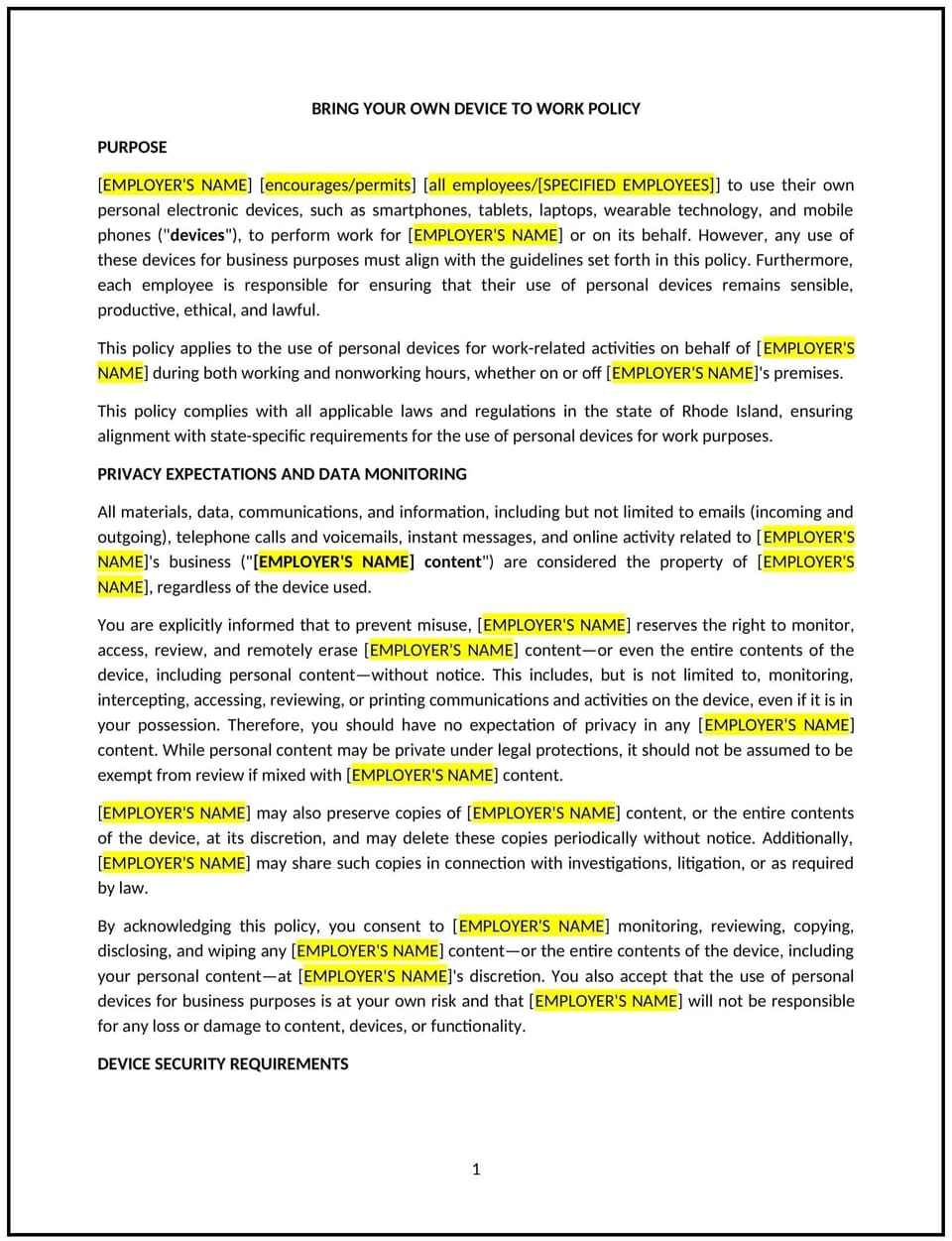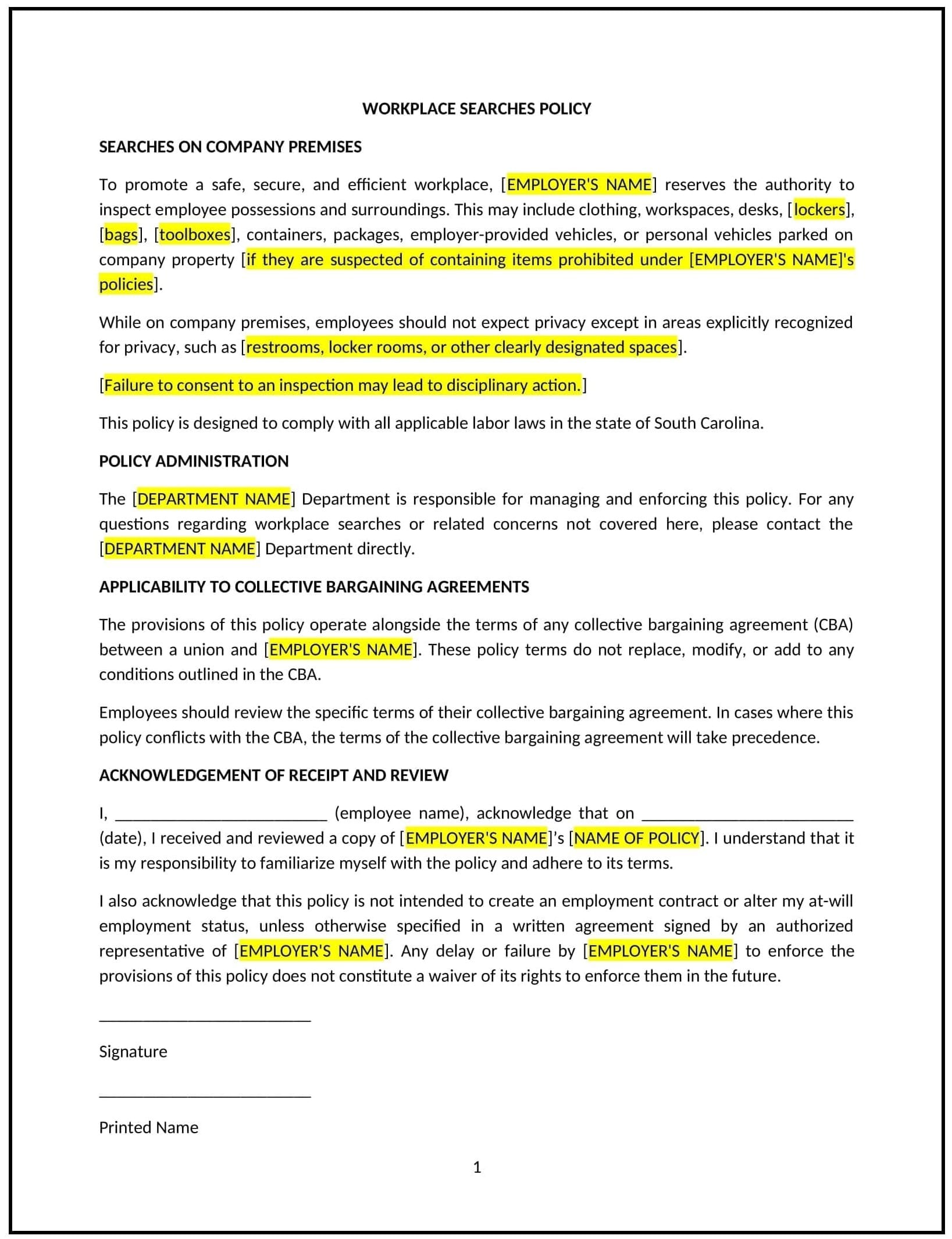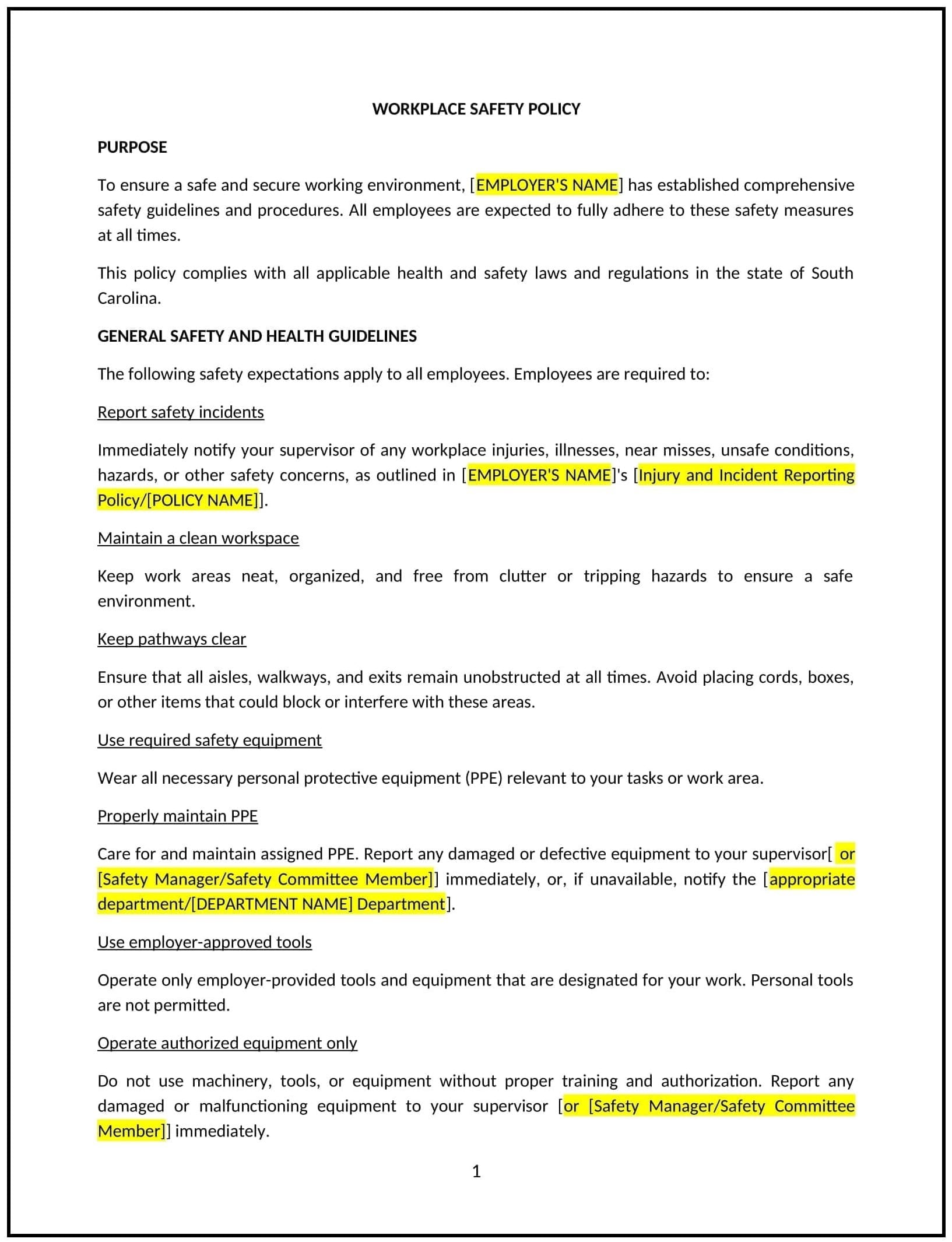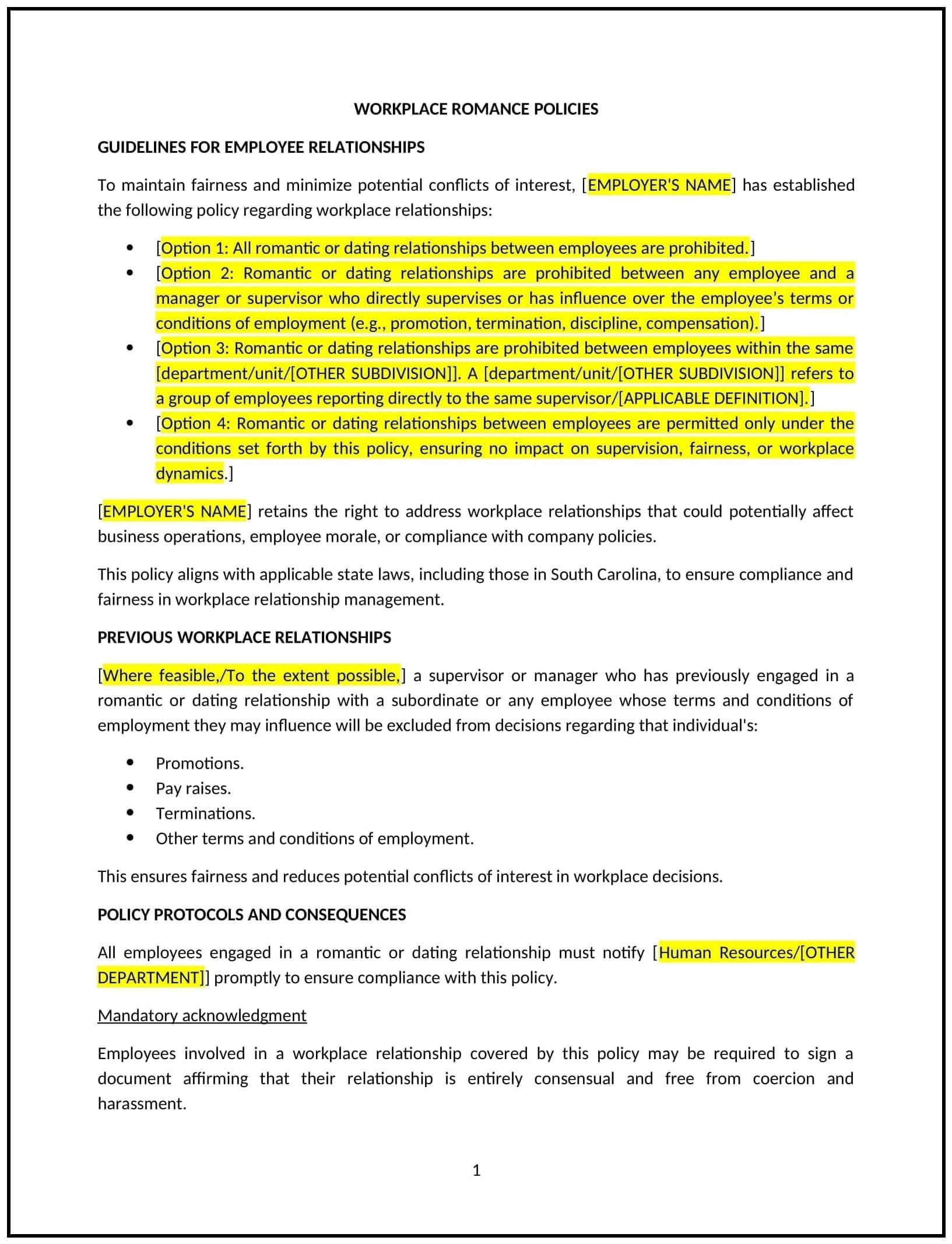Bring your own device to work policy (Rhode Island): Free template

Bring your own device to work policy (Rhode Island)
This bring your own device (BYOD) to work policy is designed to help Rhode Island businesses establish guidelines for employees using personal devices, such as smartphones, tablets, or laptops, for work-related tasks. It outlines procedures for securing data, maintaining productivity, and ensuring compliance with company IT policies.
By adopting this policy, businesses can enhance flexibility, reduce costs, and align with general best practices for IT security and device management.
How to use this bring your own device to work policy (Rhode Island)
- Define BYOD: Explain what constitutes a personal device and its acceptable use for work-related tasks.
- Establish security measures: Provide guidelines for securing devices, such as password protection, encryption, and software updates.
- Address data access: Outline how employees can access company data on personal devices while maintaining security.
- Set usage expectations: Specify acceptable use of personal devices for work, including timeframes and restrictions.
- Train employees: Educate staff on their responsibilities for adhering to the policy and maintaining IT security.
- Review and update: Assess the policy annually to ensure it aligns with evolving business needs and IT standards.
Benefits of using this bring your own device to work policy (Rhode Island)
This policy offers several advantages for Rhode Island businesses:
- Enhances flexibility: Allows employees to use personal devices for work, increasing convenience and productivity.
- Reduces costs: Minimizes expenses related to providing company-owned devices.
- Aligns with best practices: Provides a structured approach to managing BYOD and IT security.
- Builds trust: Demonstrates a commitment to balancing employee convenience with data security.
- Supports remote work: Facilitates seamless work-from-home or remote work arrangements.
Tips for using this bring your own device to work policy (Rhode Island)
- Communicate the policy: Share the policy with employees and include it in the employee handbook.
- Provide training: Educate staff on their responsibilities for adhering to the policy and maintaining IT security.
- Monitor adherence: Regularly review device usage and security practices to ensure compliance with the policy.
- Address issues promptly: Take corrective action if personal devices are misused or if security breaches occur.
- Update regularly: Assess the policy annually to ensure it aligns with evolving business needs and IT standards.
Q: How does this policy benefit businesses?
A: This policy enhances flexibility, reduces costs, and aligns with best practices by providing clear guidelines for BYOD and IT security.
Q: What types of devices are typically covered under this policy?
A: Devices may include smartphones, tablets, laptops, or any personal devices used for work-related tasks.
Q: How can businesses ensure data security on personal devices?
A: Businesses should require password protection, encryption, and regular software updates on personal devices used for work.
Q: What should businesses do if a personal device is lost or stolen?
A: Businesses should have procedures in place to remotely wipe company data from the device and notify affected employees.
Q: How often should businesses review this policy?
A: Businesses should review the policy annually or as needed to ensure it aligns with evolving business needs and IT standards.
This article contains general legal information and does not contain legal advice. Cobrief is not a law firm or a substitute for an attorney or law firm. The law is complex and changes often. For legal advice, please ask a lawyer.


